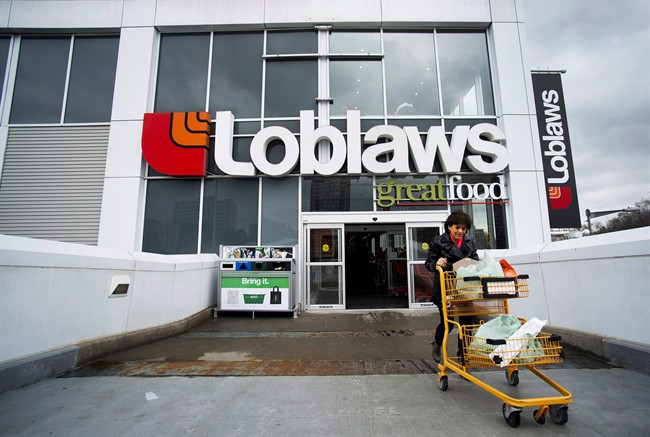Registration for Loblaw’s $25 gift card to make amends for the company’s role in a bread price-fixing scheme opened on Jan. 8. And lawyers were quick to suggest there may be a catch in the fine print about consumers not being able to participate in a class-action lawsuit if they register for and obtain the coupon.

READ MORE: Bread prices are down, so what’s Loblaw’s $25 gift card really about?
That, however, does not seem to be the case. The retailer specifically states in the terms and conditions of the card program that those who sign up are free to also seek damages in a class-action suit.
Rather, the catch is what Loblaw says quite plainly and transparently in the Frequently Asked Questions: The $25 “will be deducted from any compensation that you may otherwise be entitled to receive in any class action judgment against, or settlement with, Loblaw relating to any overcharge on the price of packaged bread.”
Customers who fill in the online and paper applications forms must agree to a release that states as much.
READ MORE: How to get your $25 Loblaw card after company’s bread price-fixing admission
Loblaw has estimated that between three million and six million people will take up its card offer, resulting in a cost of between $75 million and $150 million. That’s money the company is hoping to deduct from any amount it might end up paying out as a result of a class-action suit, said Jasminka Kalajdzic, associate professor at the University of Windsor’s Faculty of Law.
A smaller pool of money for class-action participants, in turn, would reduce the fees that Loblaw would have to pay to the class-action lawyers, which is calculated as a percentage of the settlement amount, she added.
Public relations campaign aside, Loblaw is “trying to reduce how much they’re going to have to pay down the road,” Kalajdzic told Global News.
Ontario Superior Court Justice Edward Morgan, who on Jan. 10 ruled on a motion challenging the conditions of Loblaw’s card program, seems to think the same.
Although the judge found the terms imposed by the company to be “fair,” he also wrote that: “The card program, however, is not akin to a Christmas turkey giveaway that the retailer decided to do in order to regain customer goodwill and nothing further. It is specifically related to the class action liability that it foresees down the road.”
Whether that strategy will work remains to be seen.
READ MORE: Loblaw alerted competition bureau on bread price-fixing immediately, company says
The court also said that at “this stage it’s too early to declare that the release is enforceable and can be set off,” said Jay Strosberg, partner at Strosberg Sasso Sutts.
It’s also uncertain whether the full $25 per customer would be deducted, said Kalajdzic. After all, Loblaw may not be losing $25 per customer through a coupon that is only usable at Loblaw stores.
WATCH: Loblaws admits to price fixing bread

Why $25, anyways?
According to Kalajdzic, $20-$25 is about the amount that’s been awarded in recent price-fixing class action lawsuits where participants weren’t expected to have proof of purchase.
“Perhaps that’s what Loblaw was thinking,” she added.




Comments